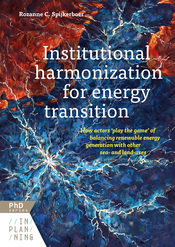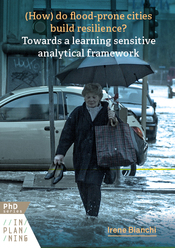
Sewers, Ponds, and Gardens
Technology and the Politics of Circular Water Flow in Los Angeles. This dissertation undertakes a critical inquiry into urban water circularity in practice.

|
|

Technology and the Politics of Circular Water Flow in Los Angeles. This dissertation undertakes a critical inquiry into urban water circularity in practice.


The central research question of this paper is: Is ownership of unoccupied housing in prime locations worth protecting?


This dissertation explores theoretical conceptualisations that see heritage as a manifestation of continually changing and interrelated processes of valuation and revaluation.


How actors ‘play the game’ of balancing renewable energy
generation with other sea- and land-uses.


This thesis addresses the complexity of increasing residents' involvement in flood risk governance and reduces that complexity by conveying a greater understanding of residents' perspectives.


Urban resilience is almost unanimously identified as an inherently positive guiding principle in the risk reduction policy field. However, limited attention is paid to the learning dimension of resilience-building.


This PhD research adopts a policy design perspective that revolves around the conscious effort of matching policy instruments to policy goals in order to attain desired outcomes.


This dissertation investigates how floodlabel can be effective in flood risk management. It adopts a relational approach to the complexity of behavioral change of homeowners in flood risk management.
